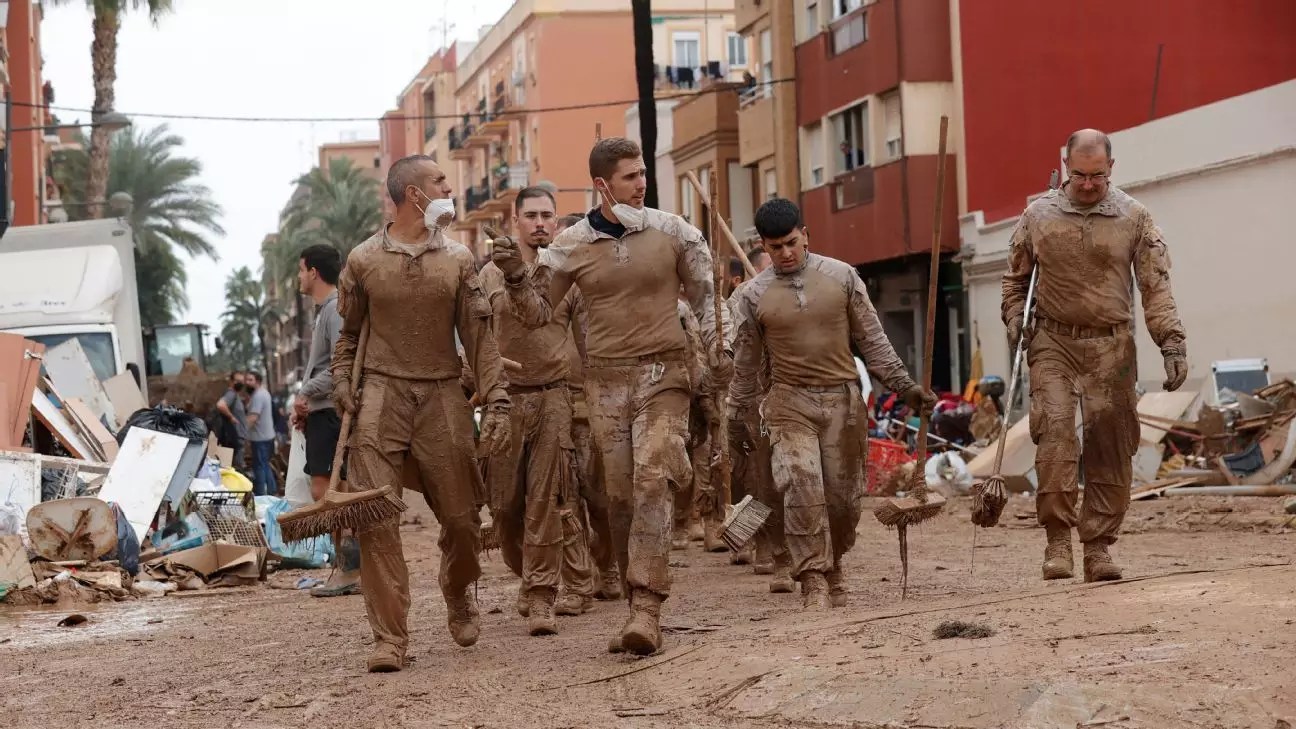Natural disasters can have far-reaching effects on communities, especially in regions where public life is deeply intertwined with sports. Recent catastrophic flooding in the Valencia region has tragically underscored this reality, with the Copa del Rey fixtures, showcasing the resilience of local franchises, now facing a second round of postponements. Originally scheduled for last week, these matches have been delayed as the region grapples with the aftermath of flash floods, which claimed at least 217 lives and devastated infrastructure.
Not only has this disaster interrupted the sporting calendar, but it has also highlighted the necessity for sports organizations to prioritize community welfare over continuity of games. The Spanish football federation (RFEF) has announced the rescheduling of five Copa del Rey matches, reflecting a generally sympathetic response to a situation that warrants communal solidarity and respect for the lives affected.
Among the matches impacted, Valencia’s away game against Parla and Levante’s encounter with Pontevedra have generated significant attention, as local supporters keenly await the revitalization of their beloved teams. Now resettled for later this month, these games are symbolic of hope and recovery for a region in mourning. Valencia’s LaLiga game against Real Madrid, which was also postponed alongside Villarreal’s clash with Rayo Vallecano, encapsulates the broader ramifications of the flooding on the frenzied football schedule.
Valencia’s forthcoming visit to Parla on November 26, alongside matches for Ejea against Hércules on November 14 and Levante’s face-off with Pontevedra on November 19, will give fans a much-needed focus amid the chaos. Each match signifies a step toward normalcy and resilience, as both players and the community find solace in their sporting institutions during recovery.
A wave of discussions surrounding the effect of such tragedies on sporting events has emerged, with influential voices calling for a reconsideration of the sports calendar during crises. Notably, Real Madrid’s Carlo Ancelotti advocated for a complete halt to football activities in Spain, emphasizing the need for sensitivity and respect for those affected. Such calls reflect a growing recognition that, at times, the spirit of sports must be set aside in favor of genuine human compassion.
This unprecedented situation invites broader conversations about how sports organizations should respond in times of disaster. The present moment challenges managers, clubs, and athletes to prioritize community healing while navigating the complex emotional landscape that such tragedies provoke.
A New Chapter for Valencia
As recovery efforts continue, the region’s football teams emerge as potential beacons of hope. Every game rescheduled and each moment of on-field competition provides a platform not just for athletic prowess but also for emotional healing. With players and fans yearning for a return to routine, these games represent more than just a battle for victory; they stand as a testament to Valencia’s resilience in the face of adversity.
Ultimately, the football community’s response will resonate far beyond the pitch, serving as a reminder of the strength found in unity among players, fans, and the broader community as they face the challenges ahead. The rescheduled Copa del Rey matches reflect a shared commitment not only to the sport but to rebuilding lives, fostering resilience, and emerging stronger together.


Leave a Reply